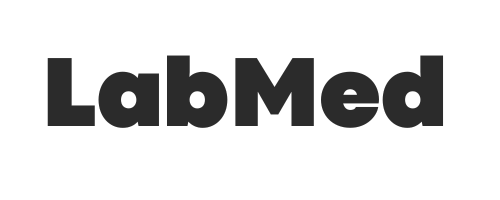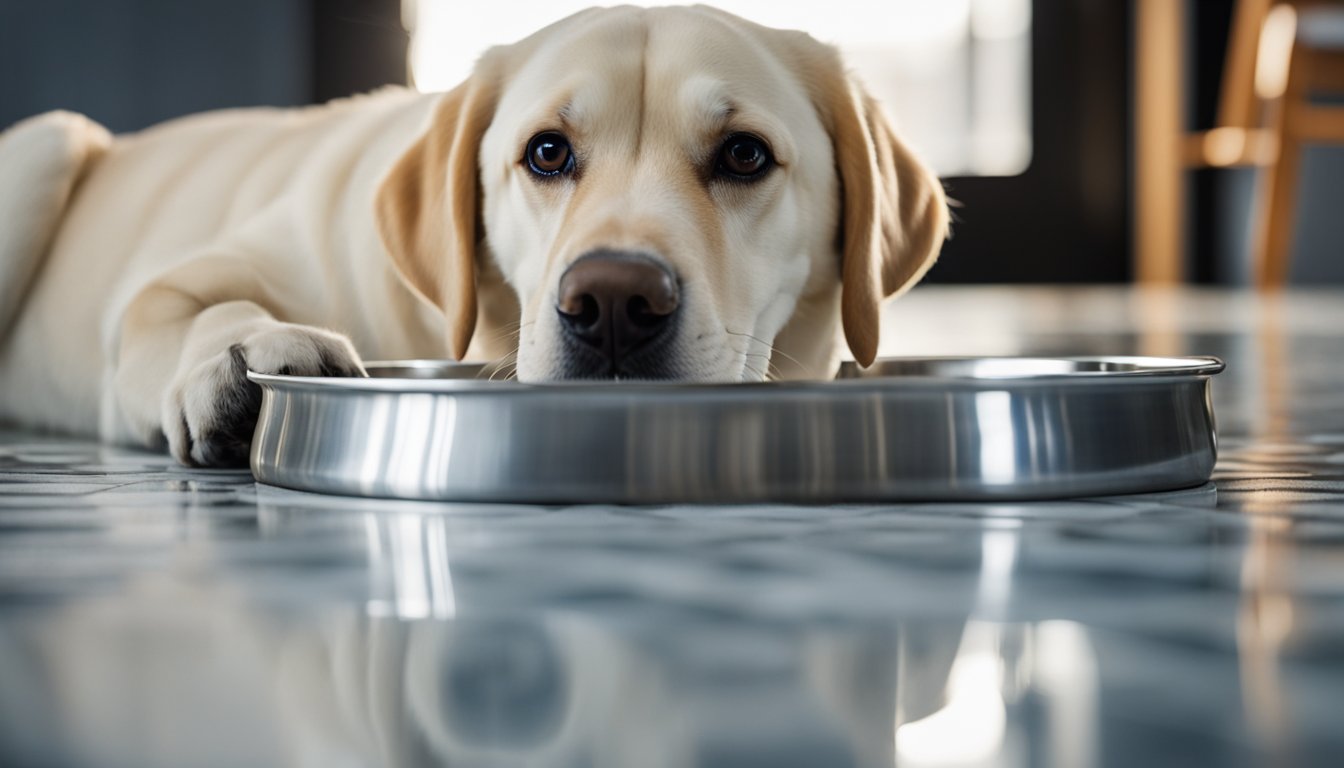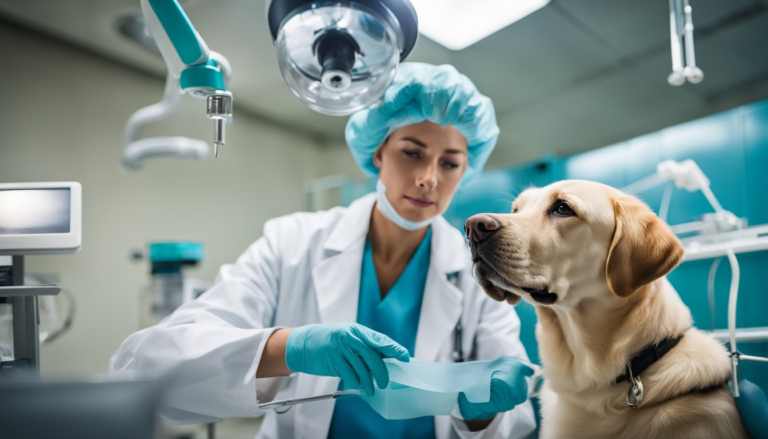How Much should you feed a Labrador Retriever? Lab Feeding Guide for Optimal Health
Labrador retrievers are known for their lovable personalities and high energy levels, which also means that they have specific nutritional requirements to support their growth and daily activities.
As a Lab owner, it is essential to be aware of these needs and understand how much to feed them to maintain their overall health and well-being. The proper feeding schedule and portions for a Labrador Retriever depend on various factors, such as their age, weight, activity level, and any special dietary considerations.
One important aspect of feeding your Labrador Retriever is ensuring they receive adequate nutrients through their meals. This not only includes the right balance of proteins, fats, and carbohydrates but also essential vitamins and minerals. Keep in mind that the nutritional needs of a Lab will change as they grow from puppies to adults, which consequently affects their feeding requirements.
Therefore, it is important to adapt their diet based on their stage in life and, if needed, consult a veterinarian for personalized guidance.
Managing your Labrador Retriever’s weight is also necessary for their overall health. These dogs have a predisposition to obesity, which can lead to various health issues, including joint problems, heart disease, and a decreased life span.
Implementing an appropriate feeding schedule, adjusting portions according to their exercise level, and monitoring their weight regularly can significantly contribute to their well-being.
Quick Summary
- Understand your Labrador Retriever’s nutritional requirements to maintain their overall health and well-being
- Adapt your Lab’s feeding schedule and portions based on their age, weight, and activity level
- Monitor and manage your Lab’s weight to prevent obesity and related health issues
Age-specific Feeding Guides

Puppies
Labrador Retriever puppies experience rapid growth and have specific nutritional needs during the first few months of their lives, such as the essential amino acids and non-essential amino acid nitrogen requirements highlighted in a study on amino acid requirements in Labrador puppies. Start by feeding your labrador puppy with a high quality puppy food that is designed to support their growth. It’s generally recommended to start weaning puppies onto solid food at around 5-8 weeks of age.
Feeding frequency for puppies should be:
- 8 weeks to 3 months: 4 meals per day
- 3 months to 6 months: 3 meals per day
- 6 months to 1 year: 2 meals per day
While it is essential to provide enough nutrition to support growth, be cautious not to overfeed; obesity in puppies can lead to long-term health issues.
Adults
Adult Labrador Retrievers have different dietary needs compared to puppies. You can start feeding your labrador an adult dog food once they reach approximately 1 year of age. The main difference between adult and puppy food is that adult food contains less protein and fat to support maintenance while remaining active.
When feeding an adult labrador, consider the following:
- Feeding Frequency: Stick to 2 meals per day
- Portion Sizes: Adjust the amount based on your dog’s weight, activity level, and overall health condition. Consult your veterinarian for specific recommendations.
A maintenance diet is necessary for an adult labrador, as it helps to prevent obesity and provides them with essential nutrients for an active lifestyle.
Seniors
As your Labrador Retriever enters its senior years (typically around 8 years and older), its nutritional needs and metabolism change again. It is recommended to adjust their diet to support their aging bodies.
Labrador seniors may benefit from the following dietary adjustments:
- Lower calorie intake: Older dogs may become less active, which means they require fewer calories to maintain their weight.
- Higher-quality protein: Senior dogs need protein to maintain muscle mass and healthy organ function but may have difficulty processing low-quality protein.
- Supplements: Supplements like glucosamine, chondroitin, and omega-3 fatty acids can help support joint health and overall well-being.
Special considerations may be necessary for senior dogs with severe health conditions such as kidney disease or arthritis. Always consult your veterinarian for guidance on adjusting your senior labrador’s diet to meet the changing dietary needs of its age.
Nutritional Requirements of Labrador Retrievers
Essential Nutrients
| Nutrient | Role | Recommended Daily Intake for Adult Labs |
| Proteins | Growth, development, muscle repair, and function. | 18-22% |
| Fats | Energy, support healthy skin, coat, and immune function. | 12-16% |
| Carbohydrates | Energy and support gastrointestinal health. | Up to 5% |
| Vitamins & Minerals | Maintain health, metabolic functioning, and support the immune system. | Follow vet-recommended guidelines |
Labradors, like other dogs, require a balanced diet that provides them with a range of essential nutrients. These include proteins, fats, carbohydrates, vitamins, and minerals. These nutrients play an important role in maintaining a Labrador’s overall health, as well as supporting their growth, development, and daily energy needs.
Role of Each Nutrient in a Labrador’s Health
Proteins are fundamental for a Labrador’s growth and development, as well as for muscle repair and function. They serve as the primary building blocks for tissues, organs, and enzymes. The importance of proteins is further emphasized by a study on sulfur amino acids in Labradors, which highlighted the role of methionine and cysteine in their metabolism.
Fats provide the most concentrated source of energy in a Labrador’s diet, helping to support healthy skin, coat, and immune function. Essential fatty acids, such as omega-3 and omega-6, are particularly needed for their overall well-being.
Carbohydrates are a source of energy and dietary fiber, which aids digestion and supports gastrointestinal health. While not essential for a Labrador’s survival, they help maintain optimal energy levels, especially for active dogs.
Vitamins and Minerals play a vital role in maintaining a Labrador’s health, ensuring proper metabolic functioning, and supporting their immune system. Some essential vitamins and minerals for Labradors include vitamins A, D, E, K, calcium, and phosphorus.
Water is an often-overlooked nutrient that is essential to a Labrador’s health, as it helps regulate body temperature, supports digestion, and transports nutrients throughout the body.
Recommended Daily Intake of Each Nutrient
The recommended daily intake of each nutrient varies depending on the age, weight, and activity level of the Labrador. A general guideline for adult Labradors is to consume around 18-22% protein, 12-16% fat, and no more than 5% carbohydrates in their diet.
In terms of vitamins and minerals, it’s essential to follow vet-recommended guidelines or refer to a Labrador breed guide for specific nutrient requirements. Keep in mind that the daily intake should be adjusted accordingly if your dog is very active, growing, or has any health concerns.
Regular vet visits and monitoring your Labrador’s weight, appearance, and energy levels will help you determine if their nutritional needs are being met and whether any adjustments to their diet are necessary.
Managing a Lab’s Weight
Ideal Weight Ranges

Labrador retrievers should maintain a healthy weight to ensure optimal health and wellbeing. For lab puppies, it is suggested to provide an appropriately balanced diet to support their growth and development. By following a Labrador retriever growth and weight chart, you can track their progress to ensure they are within the ideal weight range.
Adult labs should also maintain an ideal weight to reduce the risk of health problems associated with being overweight or obese. As a general guideline, male labs tend to weigh between 65-80 pounds, while female labs range from 55-70 pounds.
Importance of Maintaining a Healthy Weight
Maintaining a healthy weight is important for labrador retrievers, as overweight and obesity can lead to an increase in health problems, such as joint issues, diabetes, heart disease, and more. A healthy weight allows them to stay active, reduces the risk of these health issues, and improves overall quality of life.
It’s essential to provide a balanced diet and adequate exercise for labs to maintain a healthy weight. Monitoring your lab’s appetite and ensuring they get regular physical activity will contribute to their long-term health and wellbeing.
Monitoring and Adjusting Diet as Needed
It’s necessary to keep an eye on your labrador retriever’s diet and make adjustments when necessary. This includes monitoring their food intake, offering an appropriate balance of nutrients, and adjusting portion sizes based on their age, weight, and activity levels.
Regular weigh-ins, as well as observing their body condition, can help you determine if any adjustments need to be made to their diet. By regularly assessing and adjusting their diet as needed, you can help your labrador retriever maintain a healthy weight throughout their life.
Different Types of Food You Can Feed Your Lab

Commercial Dog Food
Commercial dog food is a common choice for feeding Labrador Retrievers. These foods come in various forms, such as kibble, wet food, and dry food. Many commercial dog food brands offer specially formulated recipes for Labrador Retrievers to ensure a balanced diet. When selecting a commercial dog food, always read labels and choose a high-quality brand with the right nutritional content for your Lab.
We made it easy with our round up of the best foods for labs.
Homemade Dog Food
Another option for feeding your Lab is homemade dog food. Preparing homemade dog food allows you to control the ingredients and ensure your Lab is getting the proper nutrients.
While creating suitable recipes, make sure to include essential ingredients, such as high-quality protein sources, complex carbohydrates, healthy fats, and vitamins and minerals. On the other hand, avoid using ingredients that can be harmful to your Lab, such as chocolate, grapes, or onions.
Raw Diet
A raw diet, also referred to as a BARF (Biologically Appropriate Raw Food) diet, is another feeding option for Labrador Retrievers. This diet consists of raw meat, bones, organs, and other nutritious food items.
Proponents of the raw diet claim it has several benefits for dogs, such as:
- improved coat condition
- increased energy levels
- better overall health
However, there are also risks associated with raw feeding, including potential bacterial contamination and the possibility of an unbalanced diet. It’s essential to research the proper raw feeding guidelines and consult with your veterinarian before starting a raw diet for your Lab.
Treats
Treats can be an enjoyable addition to your Lab’s feeding routine. However, make sure to choose the right types of treats and avoid overfeeding them. Treats should be low in calories and made from high-quality, natural ingredients.
It’s also needed to read labels carefully to avoid any harmful ingredients or fillers. Remember, treats should make up no more than 10% of your Lab’s daily caloric intake to maintain a balanced diet.
Special Dietary Considerations

Food Allergies
Labrador Retrievers, like many other breeds, can suffer from food allergies. Identifying allergens is an important step in ensuring the health and comfort of your Lab.
Common food allergens for Labs include:
- Beef
- Dairy
- Wheat
- Egg
- Chicken
- Lamb
- Soy
- Pork
- Rabbit
- Fish
If you suspect your Lab has a food allergy, a trial elimination diet with alternative food types can help pinpoint the specific allergen. Some owners choose to feed their Labs a hypoallergenic or grain-free diet to prevent any potential food allergy issues.
Health Conditions
Labs are prone to certain health problems, including obesity and bloat. For Labs with these health concerns, make diet adjustments.
Overweight Labs may benefit from a reduced calorie diet and increased exercise to maintain a healthy weight.
Bloat, also known as gastric torsion or twisted stomach, can be a life-threatening condition. Feeding your Lab smaller, more frequent meals and avoiding exercise immediately after eating can help prevent bloat.
Pregnant/Nursing Labs
Pregnant and nursing Labs have special nutritional needs to support both the mother and the growing puppies.
Pregnant Labs require a higher caloric intake and an adjustment in their feeding guidelines to accommodate the extra demand on their body. They need a diet enriched in protein, calcium, and other essential nutrients for the healthy growth of the puppies.
As the pregnancy progresses, the mother’s food intake should gradually increase to ensure she maintains a healthy weight and has the energy to care for her puppies.
Be sure to consult your veterinarian for specific recommendations regarding feeding and nutritional needs for pregnant or nursing Lab.
Feeding Schedule
Recommended Feeding Times
A well-planned feeding schedule is essential for a healthy, growing Labrador retriever. Lab puppies should be fed three to four meals a day during their first six months, gradually transitioning to two meals a day once they reach six months of age. Adult Labrador retrievers should typically be fed two meals a day, with equal amounts of food split between the morning and evening servings.
Developing a consistent Labrador feeding schedule helps manage hunger and ensure your pet receives the proper nutrients throughout the day.
Remember to consult your veterinarian when creating a feeding chart for your Lab in order to tailor it to their age, weight, activity level, and any specific health considerations.
Adjustments for Individual Needs and Preferences
Not all Labrador retrievers have the same nutritional requirements, and the feeding methods may vary based on individual needs. Labs are prone to obesity and joint issues, which should be taken into account when planning their diet. To maintain a healthy weight, monitor your Lab’s body condition score and adjust their feeding schedule accordingly.
Active Labradors may require slightly more food, while sedentary or older dogs may need less to maintain a healthy weight. Also, consider your Labrador’s preference for dry kibble or wet canned food, as that can affect their daily calorie intake. Always refer to the manufacturer’s feeding guide or a Labrador feeding chart to determine the appropriate amount of food for your pet’s requirements.
Adjustments to the feeding schedule may also be necessary for Labs with specific health conditions. For example, Labrador retrievers prone to bloating may benefit from smaller, more frequent meals throughout the day. Consult your veterinarian for guidance if unsure about any modifications to your Lab’s feeding schedule.
Monitor their weight, activity level, and overall health to make any necessary adjustments and provide them with a balanced, nutritious diet.
How Exercise and Activity Level Affects Feeding

Importance of Exercise
Regular exercise is essential for maintaining the overall health and well-being of your Labrador retriever. A healthy, active lifestyle can help prevent obesity, alleviate stress, and improve both their physical and mental health.
Engaging in daily exercise with your Lab is also an excellent way to strengthen the bond between you and your pet. Labrador retrievers require a significant amount of exercise to meet their physical needs and maintain a healthy weight.
Adjusting Food Intake Based on Activity Levels
Like humans, dogs, particularly Labrador retrievers, require varying amounts of food based on their activity levels. By adjusting your dog’s food intake relative to their activity level, you can provide the right amount of nutrients and avoid overfeeding, which could lead to obesity and health problems.
Active Labs: If your Labrador is highly active, participating in demanding activities such as agility training, swimming, or running, they might require more food to compensate for the energy they expend during these activities. Keep a close eye on your dog’s body condition and increase their food intake accordingly.
Less Active Labs: If your Lab has a quieter lifestyle, spends more time indoors, or is a senior dog, they might require less food. Monitor their body condition and adjust their food intake to match their energy requirements.
Factors Affecting Food Intake: Remember that age, weight, and individual metabolism can also affect how much food your Labrador retriever needs. Regular veterinary check-ups can provide guidance on maintaining an ideal body condition.
Adjusting your Labrador retriever’s food intake according to their exercise and activity level is an essential part of managing their health and well-being. By becoming attuned to your dog’s needs and making necessary changes to their diet, you can ensure they live a happy, healthy life.
Risks and Warnings for Feeding Labs
Overfeeding and Underfeeding
Feeding a Labrador Retriever the right amount of food is important for its health and well-being. Overfeeding can lead to obesity, which increases the risk of various health issues such as joint problems and diabetes. On the other hand, underfeeding may cause malnutrition, resulting in stunted growth and a weak immune system.
To prevent overfeeding or underfeeding, it’s essential to determine the appropriate amount of food based on factors like age, weight, and activity level. Monitoring a Lab’s body condition regularly and adjusting the food intake accordingly can help maintain a healthy balance.
Warning Signs of Improper Nutrition
Signs that a dog might not be receiving proper nutrition can manifest in several ways. These may include:
- Change in stool consistency or frequency: If a Lab’s poop becomes unusually loose or they’re defecating more or less than usual, it could be indicative of a dietary issue.
- Not eating: A sudden disinterest in food may signal that something is wrong, either with the dog’s diet itself or an underlying health issue.
- Poor body condition: A Lab should have a healthy body condition score, with clearly visible waistline and ribs that can be felt but not seen. An underweight or overweight dog is at risk of various health problems.
- Low energy levels: A Labrador Retriever should be energetic and enthusiastic. A sudden or ongoing decline in energy might indicate an issue with their food intake or overall health.
Consultation with a Veterinarian
If there are concerns about a Lab’s diet, it’s important to consult with a veterinarian. They can provide advice on appropriate food types, portion sizes, and feeding schedules specific to an individual Lab’s needs. Regular check-ups with a vet will help ensure the dog’s health and well-being, while also allowing for the early detection and treatment of any potential issues.
Remember to follow a consistent feeding routine and monitor the dog’s response to changes in food or portion sizes. Providing a balanced diet and understanding the risks and warning signs of improper nutrition will promote a healthy and happy life for your Labrador Retriever.
Tailoring Diet Plans Based on Health Assessments
When it comes to feeding a Labrador Retriever, it is important to tailor the diet plan based on the individual dog’s health assessment.
This process involves evaluating the dog’s body condition score (BCS), activity level, age, and any medical conditions. By taking into account these factors, an appropriate diet can be created to meet the Labrador’s specific nutritional needs.
Health assessments play a significant role in determining the appropriate amount of food and type of diet for a Labrador.
A dog’s BCS, which ranges from 1 to 9, helps gauge their overall body condition.
A score of 4-5 is considered ideal, while lower scores indicate underweight and higher scores indicate overweight or obesity. For an overweight Labrador, adjusting their daily caloric intake and incorporating weight management techniques can be beneficial. One study suggests that effective weight management involves tailoring the plan based on the pet’s past feeding experiences.
In addition to considering the dog’s BCS, it is essential to examine their activity level. Active dogs often require higher caloric intake to support their energy demands. On the other hand, sedentary dogs may need fewer calories or a diet with lower fat content to prevent weight gain. Adjusting the diet based on the Labrador’s activity level will provide the required nutrients and prevent possible health issues.
As Labradors age, their dietary needs may change as well.
Puppies and young adults typically have higher energy requirements, so they need more calorie-dense food.
Senior dogs, however, may need a diet with lower calories and increased fiber content to maintain a healthy weight and support gastrointestinal health.
Considering any underlying medical conditions is important when tailoring a Labrador’s diet plan. Some health issues, like food allergies, may require a change in diet to eliminate allergens. In cases of kidney disease or certain digestive disorders, a veterinarian-prescribed therapeutic diet may be necessary to manage the condition effectively.
To create the best diet plan for a Labrador Retriever, pet owners are encouraged to consult with their veterinarian and gather information from reviews of suitable dog food options. By tailoring the diet based on health assessments, Labradors can enjoy a well-balanced and health-promoting meal plan catered to their individual needs.
Frequently Asked Questions
What is the recommended daily feeding amount for a Labrador?
The daily feeding amount for a Labrador Retriever can vary depending on factors such as age, size, activity level, and individual metabolism. A general guideline is to feed an adult Labrador Retriever around 2.5 to 3 cups of high-quality dry food per day, divided into two meals. However, it’s essential to consult your veterinarian for personalized recommendations based on your dog’s specific needs and circumstances.
How often should I feed my Labrador Retriever?
Labradors should be fed twice a day, once in the morning and once in the evening. This feeding schedule helps maintain stable energy levels throughout the day and avoids overeating due to hunger. Puppies may need feedings three to four times a day until they reach six months of age, after which they can transition to the twice-a-day feeding schedule.
What are the best foods for a Labrador puppy?
A Labrador puppy needs a nutritious and balanced diet for their healthy growth and development. Look for high-quality puppy food specifically designed for large breeds, as these will provide the right nutrient proportions for a growing Labrador. Key ingredients to look for include high-quality animal proteins, healthy fats, and essential vitamins and minerals. Make sure to consult your veterinarian for specific food recommendations and feeding guidelines.
Can a Labrador be overfed and how to prevent it?
Yes, a Labrador Retriever can be overfed, which may lead to obesity and related health issues. To prevent overfeeding, it’s suggested to measure their food accurately based on the serving size recommended by the food manufacturer and your veterinarian. Additionally, avoid giving them table scraps or excessive treats, and encourage regular exercise to help maintain a healthy weight.
What adjustments should be made for an overweight Labrador’s diet?
If your Labrador Retriever is overweight, consult your veterinarian to determine an appropriate weight loss strategy. This may involve adjusting their daily food intake, gradually transitioning to weight management or lower-calorie dog food, and incorporating more exercise into their routine. It’s essential to monitor their weight and progress, making adjustments as needed under your veterinarian’s guidance.
How does a Labrador’s feeding change as it grows and ages?
As a Labrador grows and ages, their nutritional needs and feeding habits will change. Puppies require more frequent feedings and higher protein intake during their growth phase. As they mature, their food intake will decrease, and the focus should be on maintaining a healthy weight and balanced diet.
Senior Labradors may need further adjustments, potentially requiring a diet specifically formulated for older dogs to support joint health and manage age-related issues. Consulting your veterinarian throughout your Labrador’s life will help ensure optimal nutrition and overall health.







